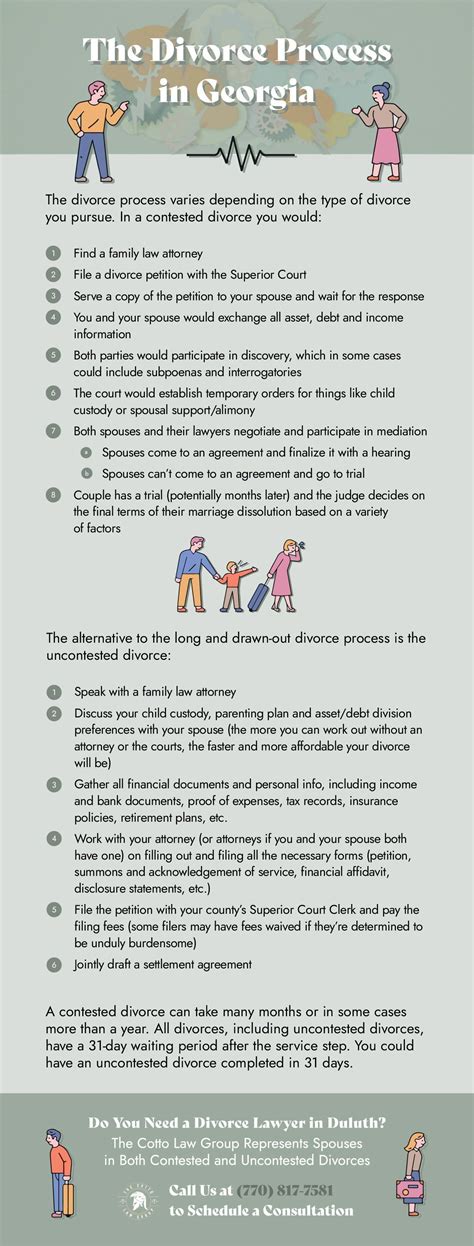Minimize Stress and Costs During Your Georgia Divorce
Divorce is rarely easy, but navigating the legal complexities in Georgia doesn't have to be overwhelmingly stressful or financially draining. With careful planning and a strategic approach, you can significantly reduce both the emotional toll and the financial burden of your divorce. This guide offers practical advice and insights to help you manage the process effectively.
What are the Common Causes of Stress During a Georgia Divorce?
Many factors contribute to stress during a Georgia divorce. These often include:
- Uncertainty about the future: The unknown aspects of child custody, property division, and spousal support can cause significant anxiety.
- Emotional turmoil: The emotional impact of ending a marriage is substantial, often exacerbated by conflict with your spouse.
- Financial concerns: Dividing assets and managing legal fees can be a major source of stress.
- Communication breakdowns: Lack of communication or ineffective communication with your spouse and legal team can lead to delays and increased stress.
- Lengthy legal proceedings: Divorce cases can drag on, prolonging the uncertainty and emotional strain.
How Can I Minimize the Cost of My Georgia Divorce?
Minimizing the cost of your divorce requires proactive planning and strategic decision-making:
- Consider Mediation: Mediation offers a less adversarial approach than litigation, often resulting in lower legal fees and faster resolution. A neutral mediator helps you and your spouse reach agreements on key issues.
- Uncontested Divorce: If you and your spouse agree on all aspects of the divorce, an uncontested divorce is significantly less expensive and time-consuming than a contested one. Careful preparation of your agreement is crucial.
- Limited-Scope Representation: For straightforward divorces with minimal assets, consider limited-scope representation. This allows you to hire an attorney for specific tasks rather than full representation throughout the entire process, saving on legal fees.
- Negotiate Directly (with caution): If you and your spouse have a good working relationship, you might consider attempting to negotiate directly. However, it's advisable to seek legal counsel to ensure your rights are protected. This is particularly critical if significant assets are involved.
- DIY Divorce (with extreme caution): While seemingly cost-effective, attempting a DIY divorce is risky. Mistakes can have costly consequences, making professional legal advice often worthwhile in the long run.
How Can I Reduce the Stress of My Georgia Divorce?
Reducing stress involves addressing both the emotional and practical aspects of the process:
- Seek Emotional Support: Lean on family, friends, or a therapist for emotional support during this challenging time. Professional counseling can help you process your emotions and develop coping mechanisms.
- Maintain a Healthy Lifestyle: Prioritize healthy eating, exercise, and sufficient sleep to manage stress more effectively.
- Set Realistic Expectations: Understand that the divorce process takes time. Avoid unrealistic expectations and focus on making progress, however small.
- Focus on Communication: While challenging, clear and respectful communication with your spouse (especially with a mediator) can lead to a smoother process.
- Organize Your Finances: Gather all relevant financial documents early in the process. This helps you and your attorney understand the financial picture and prepare for negotiations.
What are Common Issues in Georgia Divorces?
Common issues that often arise in Georgia divorces include:
- Child Custody and Support: Determining custody arrangements (physical and legal) and child support obligations is often the most emotionally charged aspect of the divorce.
- Property Division: Georgia is an equitable distribution state, meaning marital assets are divided fairly, but not necessarily equally, between the spouses. This can be complex, especially with significant assets or businesses.
- Spousal Support (Alimony): Spousal support is awarded in some cases to provide financial assistance to one spouse after the divorce. The eligibility and amount are determined based on factors such as length of marriage, income disparity, and the need for support.
How Long Does a Georgia Divorce Take?
The timeline for a Georgia divorce varies depending on the complexity of the case and the willingness of both parties to cooperate. Uncontested divorces can be finalized relatively quickly, while contested divorces can take significantly longer.
What are My Rights in a Georgia Divorce?
Your rights in a Georgia divorce depend on the specifics of your situation. However, generally, you have the right to a fair and equitable division of marital assets, the right to be heard in court, and the right to legal representation. Consulting with a qualified attorney is essential to fully understand your rights.
Disclaimer: This information is for educational purposes only and does not constitute legal advice. You should consult with a qualified Georgia divorce attorney to discuss your specific situation and legal options.

